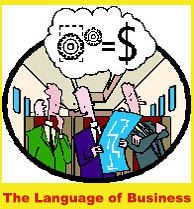In late March 2013 I was invited to be a guest participant at an “Emerging Leaders Bootcamp Workshop” organized by the New York Foundation for the Arts (NYFA). It was the last day of a week-long workshop for several dozen artists of various stripes.
This was my second involvement with NYFA. In 2011 I was fortunate to be a participant in a six-week long (one day a week) “Artists as Entrepreneurs” workshop that, for me, was pivotal in re-framing my own musical activities.
The former abovementioned “Bootcamp” brought back many memories of my own evolution as an artist with respect to personal finance.
 I am a fourth generation musician. My great grandfather and grandfather on my father’s side were string players. It is no accident my own father was a professional violinist and violist. He once taught himself to play the mandolin for work purposes and played a little piano. He was also a composer. At one time he had his own radio program in England on the BBC. In the United States he performed with the New York Philharmonic, did Broadway shows (as a pit musician). Towards the end of his life he was part of the string section in Frank Sinatra’s orchestra. He was very well respected. But he never made a great living.
I am a fourth generation musician. My great grandfather and grandfather on my father’s side were string players. It is no accident my own father was a professional violinist and violist. He once taught himself to play the mandolin for work purposes and played a little piano. He was also a composer. At one time he had his own radio program in England on the BBC. In the United States he performed with the New York Philharmonic, did Broadway shows (as a pit musician). Towards the end of his life he was part of the string section in Frank Sinatra’s orchestra. He was very well respected. But he never made a great living.
This is the conundrum for many a musician, or any fine or performing artist for that matter. It takes so much dedication and focus to get to any level of professional expertise that other concerns, such as money or finances, are, in the main, neglected. Some institutions of higher learning, such as the Manhattan School of Music, provide coursework in the music business at their Center for Music Entrepreneurship. At Baruch College (where I have taught for the last 25 years), the Department of Fine and Performing Arts offers a major in the “Management of Musical Enterprises.” But, more often than not, subjects such as money or personal finances are left to the student to find out for themselves.
To make this blog even more personal (and without a desire to show off), I’d like to share with you an instance from my own background. It’s mid-1970. I had just completed a successful career as a military historian with the United States Air Force. I had already earned a bachelor’s degree (English) from what is now Herbert Lehman College in the Bronx (New York). I was in California, contemplating a return to New York City. I decided instead to remain where I was to spend full-time working on an MBA. Why? First, my four year Air Force stint gave me the GI Bill and I wanted to take full advantage. Second, an MBA program with Golden Gate University became available where I was located (in Central California). The third reason  was just as important: I wanted to learn the “language” of business. I had no dreams of going into finance or securing a job on Wall Street. I knew at that time that upon returning to New York I would go into some aspect of communications or media. Reflecting on my father’s lack of business and financial acumen, I perceived that having a handle on the language of business—the lexicon, the terms—would give me a better chance of success.
was just as important: I wanted to learn the “language” of business. I had no dreams of going into finance or securing a job on Wall Street. I knew at that time that upon returning to New York I would go into some aspect of communications or media. Reflecting on my father’s lack of business and financial acumen, I perceived that having a handle on the language of business—the lexicon, the terms—would give me a better chance of success.
Of course, the MBA experience gave me more than a lot of words and terms. It also gave me structures for analyzing business and organizational problems, negotiating, and a long-term view, among many, many other perspectives.
This MBA experience led me to pursue (and complete) a Ph.D. in media studies (New York University), and then, because of my teaching association with Baruch College (New York City), two more degrees—these in music theory and composition.
Musicians and artists do not, in the main, spend too much time thinking about the financial consequences of their decisions. In a way, this is commendable that a group of artists in the fine and performing arts are so dedicated to their respective crafts. But such a focus can also be detrimental to a long-term financial foundation.
Some artists, of course, are so good at their art that financial success falls at their feet. Then there are others who achieve financial success only to lose it because of unscrupulous managers and promoters, poor business decisions, or just plain financial irresponsibility.
The so-called “media” are partly to blame for the impression given to the younger generation that artistic and therefore financial success is just around the corner. This has resulted in many a young person wearing the packaging of success–i.e., the clothing, the bling, the attitude—without understanding the hard work that goes into becoming successful.
 Today is a challenging period for artists. It is also a period of opportunity. But it is no longer an option for artists of all stripes to ignore the financial aspects of their lives. You cannot eat or pay the rent with applause or the appreciation of your peers. At the very least, those in the fine and performing arts need to become more adept at dealing with money and accepting the need to deal with money. Unfortunately, many, if not most, just don’t want to have to think about it. I saw this again first hand as a member of the NYFA-sponsored 2011 “Entrepreneurial Bootcamp.” The entire six weeks was devoted to the very subjects I am advocating in this blog: personal finances, copyright, accounting, branding, et al. It was an enthusiastic group. Personally, I felt privileged to have been chosen to participate in this program. Even though I have a business and financial background, just listening to the various speakers gave me an opportunity to re-frame some of my own perspectives on how to better succeed with my musical activities.
Today is a challenging period for artists. It is also a period of opportunity. But it is no longer an option for artists of all stripes to ignore the financial aspects of their lives. You cannot eat or pay the rent with applause or the appreciation of your peers. At the very least, those in the fine and performing arts need to become more adept at dealing with money and accepting the need to deal with money. Unfortunately, many, if not most, just don’t want to have to think about it. I saw this again first hand as a member of the NYFA-sponsored 2011 “Entrepreneurial Bootcamp.” The entire six weeks was devoted to the very subjects I am advocating in this blog: personal finances, copyright, accounting, branding, et al. It was an enthusiastic group. Personally, I felt privileged to have been chosen to participate in this program. Even though I have a business and financial background, just listening to the various speakers gave me an opportunity to re-frame some of my own perspectives on how to better succeed with my musical activities.
At the end of the program there was talk about mounting a Festival in early 2012. About half of the participants chose to work on it. Came time, though, to form groups to work on various aspects of the multi-disciplinary, multi-week Festival—such as Programming and Finances—virtually all chose Programming, and hardly anyone wanted to deal with Finances.
Artists need to change their attitude towards money. It is not a dirty thing or even a scary thing. It is a necessary thing. It’s not about how much you make, but how much you keep. It’s not about being true to your art or “selling out.” It’s about managing money matters as a means to a healthy life in the service of one’s art.
Please write to me at meiienterprises@aol.com if you have any comments on this or any other of my blogs.
Eugene Marlow, Ph.D.
May 20, 2013
© Eugene Marlow 2013


